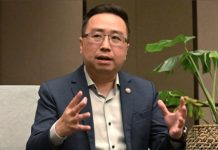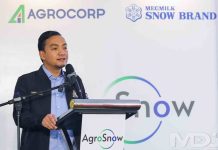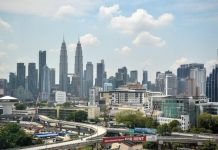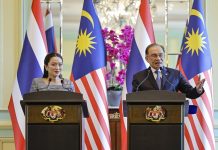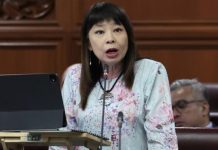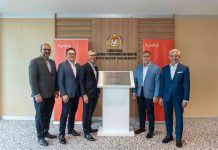PwC Singapore has released a set of recommendations – focusing on supporting businesses, the sustainability agenda, and the workforce – which were provided to the Ministry of Finance for consideration about the upcoming Singapore Budget 2024.
Sharing his thoughts on addressing Singapore’s internal and external challenges along with its business and societal needs, Marcus Lam, executive chairman, PwC Singapore, said:
“Budget 2024 presents an avenue to enhance the harmony between seizing opportunities in the marketplace and for the people and advancing social values. When we think about what Singapore can become in the future, we envision an economy characterised by care and consideration for the wellbeing of our planet, people and businesses. In a world that is prone to polarisation, we believe Singapore’s competitiveness can leverage on its prevailing strengths and on cultivating a self-resilient as well as values-driven economy. This is what inspired our proposals for the upcoming Budget.”
Drawing attention to key issues the proposals aim at addressing, Chris Woo, Asia Pacific and Singapore tax leader, PwC Singapore, said:
“While facing slower growth and high inflation, as a society, we must also manage greater funding needs for healthcare, education and sustainability demands. Simultaneously, international tax changes will likely impact the attractiveness of Singapore’s tax incentive regime.
“In tackling these issues, it is vital that Singapore continues to be a caring nation, and it must continue to find new ways to remain attractive to foreign and local investors. I am confident the 2024 Singapore Budget will give assistance to those in need in Singapore society. That said, it will also need to be balanced with measures for businesses to seize opportunities around sustainability and food resilience.”
Some key recommendations of the proposals include:
1. Sustainability Support Scheme (SSS) to help businesses operationalise sustainability
Transitioning to operating sustainably is costly for businesses. To support businesses in their efforts to operationalise their sustainability strategies and goals, PwC Singapore proposes introducing a comprehensive Sustainability Support Scheme (SSS) that is administered by a single government agency which can help ease administration burden. This SSS is a one-stop platform that can comprise grants and tax incentives in the form of super deductions, refundable tax credits, investment allowances, concessionary tax rates, and withholding tax exemptions, depending on the nature of activities to be supported and the attributes of the applicant. For further details with regards to key considerations for the SSS, refer to Appendix A.
Irene Tai, Energy, utilities and resources tax leader, PwC Singapore said: “The transition to operating sustainably and maintaining that momentum will no doubt be costly. To establish a culture of sustainability within an ecosystem made up of companies of different shapes and sizes, a dedicated and customisable scheme is necessary. This will provide the appropriate level of support for different needs across the ecosystem to drive the desired actions and outcomes.”
2. Measures to facilitate Singapore’s food security transformation
One of the key challenges to sustaining any viable farming activity in Singapore is its high cost of production compared to neighbouring countries where much of its food is imported from. In support of Singapore’s 30 by 30 initiative and with an aim to attract capital, the Government can consider granting a concession for farming income and allowing eligible investors a tax deduction for losses incurred by a company which is in the business of producing food locally.
To further encourage building and land farming productivity, PwC Singapore proposes for the tax rules to allow deduction for the cost of approved buildings used exclusively or almost exclusively for food farming purposes, and deduction for upfront land premiums for such buildings on land approved for farming. The Government also can consider extending the Land Intensification Allowance (LIA) to certain sectors involved in the conversion of buildings or structures for farming purposes. Furthermore, and to attract investors, the Government can consider allowing companies in this space to carry forward unutilised LIA.
Ching Ne Tan, corporate tax leader, PwC Singapore, said: “As we embark on the 30 by 30 initiative, addressing the pressing challenge of high production costs in Singapore’s farming sector is paramount. Advocating for strategic tax concessions and deductions will not only nurture local food production but also beckon investors to contribute to a sustainable agricultural landscape, aligning economic growth with the goals of self-sufficiency and environmental stewardship.”
3. Channel support to employees’ needs, focusing on rising costs, family care, healthcare and workforce re-entry
Against the backdrop of an increasingly restless and on-edge workforce, according to the Singapore highlights of PwC’s Global Workforce Hopes and Fears Survey, PwC Singapore proposes extending more care to employees in the form of:
- Increasing the maximum amount of relief claimable for taxpayers below the age of 55, and to provide one-off tax rebate
- Making the fixed dollar amount for the Working Mother’s Child Relief (WMCR) available as the minimum relief to eligible working mothers with a Singaporean child born or adopted before 1 January 2024
- Mandatory family or parent care leave to address Singapore’s ageing population needs
- Additional eight weeks of maternity leave in the form of flexible working arrangement or working from home arrangement to help new working mothers ease back into work
- Grants to encourage employers to provide more mental health benefits to their employees in efforts to promote a more caring workplace and reduce burnout
- Additional 30 days of sick leave for employees coping with chronic illness
- Wage support for caregivers re-entering workforce
- Extension of Senior Employment Credit
- Additional SkillsFuture Credits for senior workers aged 65 and above
Noel Goh, workforce rewards leader, PwC Singapore said: “Building a care and support ecosystem centred on total wellbeing requires a reimagination of the social compact that is currently the status quo. It demands a deeper systemic rethink from all leaders of the public, people and private sectors to determine how it should be.
“This is especially the case given today’s new paradigm of work, where the skilled worker is front and centre – as underlined in PwC’s Global Workforce Hopes and Fears Survey, and Global CEO Survey 2023 – and scarce. To help recruit and retain them, best performing employers are building their workforce around skills, people and their respective seasons of life instead of conforming to conventional job roles.”
Martijn Schouten, workforce transformation leader, PwC South East Asia Consulting said: “With employee needs becoming more heterogeneous, it’s important for employers to critically look at the “whole person” and not just the “person on the job,” taking into account employees’ stage of career and season of life. The Government can play a role in facilitating greater flexibility in benefits that employers can subsequently leverage in meeting and supporting individual employee needs.”
4. Secure Singapore’s standing and its appeal as the preferred business destination
With the Global Anti-Base Erosion (GloBE) Model Rules becoming a reality, the Government can consider introducing a framework for granting refundable credits for MNEs with Singapore operations. This framework should be designed to minimise the impact of the global minimum tax for MNEs (e.g. in line with the GloBE rules so as to minimise impact of any top-up tax) and simultaneously encourage businesses to align their investments with Singapore’s overall economic goals .
The Government can also consider granting manufacturers a credit – calculated using a certain percentage of qualified investment cost or pegged against some measurable target, e.g. ESG or productivity criteria – as a payment against tax. This move can help promote key industry players to set up manufacturing facilities in Singapore and address the sector’s uncertain growth outlook*.
Ching Ne Tan, corporate tax leader, PwC Singapore, said: “As we navigate the imminent global anti-base erosion model rules, our proposal for refundable credits not only fortifies Singapore’s appeal as the preferred foreign direct investment location but also addresses business concerns of high operating costs in Singapore. For MNEs committed to doing business in Singapore, refundable credits or grants aligned with international standards can create a conducive environment for businesses. In turn, they will help contribute to Singapore’s economic growth.”
5. Enabling Singapore businesses to trade more effectively
The European Union (EU) recently introduced the Carbon Border Adjustment Mechanism (CBAM) and included maritime emissions in the EU Emissions Trading System (EU ETS). These will have implications on Singapore exporters.
To protect local exporters from being subject to additional taxes and from incurring higher export costs, the Government can consider providing specific guidance on how Singapore exporters can best manage and fulfil the CBAM requirements. Furthermore, the Government can also consider increasing efforts and transparency in identifying CBAM-affected goods to defray additional costs and resources required by Singapore exporters to fulfil their responsibilities to their EU importers.
In anticipation that Singapore-based companies enjoying the Maritime Sector Incentive (MSI) will be buy and selling EU ETS’ emission allowances, it will be helpful the Maritime Port Authority (MPA) to provide guidance on how the gains or losses arising from the trading of such emission allowances that are ancillary to shipping activities should be treated for Maritime Sector Incentive purposes. In addition, the government may consider granting tax exemption on such trading activities.
Frank Debets, managing partner, customs and international trade at PwC Worldtrade Management Services, said: “To be truly bold, the government can consider introducing its own version of a CBAM, enabling Singapore to be a leader rather than a follower in this space, promoting greater efforts in sustainability and proactively dealing with the coming tide of climate related challenges.”






